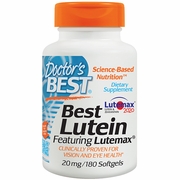 As the old saying goes, “the eye is the window to the soul”. But unfortunately, these “windows” tend to get all blurry and strained, especially when sudden exposure to harsh lights and glare, causing the eyes to experience photostress. Thanks to the eye’s macula pigment, these pairs of sensory organ have the ability to cope and recover from the said exposures.
As the old saying goes, “the eye is the window to the soul”. But unfortunately, these “windows” tend to get all blurry and strained, especially when sudden exposure to harsh lights and glare, causing the eyes to experience photostress. Thanks to the eye’s macula pigment, these pairs of sensory organ have the ability to cope and recover from the said exposures.
The macula is the central part of the retina that is considered to be the “vision field” merely because it is the most directly exposed to light. Basically, the macula is responsible for adjusting the image in an over-lit area by minimizing blue haze and glare, as well as maximizing contrast sensitivity when adapting to darker images. When a particular person ages, the density of the macular pigment significantly decreases and degenerates that specific results in loss of vision.
Other Causes of Macula Degradation
Aside from the common risk factors that include hereditary causes and aging, studies have reported that smoking, excessive fat intake, deficiency in vitamin D, obesity, even gender and ethnicity may and can contribute to the degeneration of the retina macula. These factors greatly reduce the density of the macular pigmentation over time. Symptoms of degeneration include visual distortion or blurriness, change in eye pigmentation and ultimately, blindness.
Dry Macular Degeneration vs. Wet Macula Degeneration
To elaborate further, macular degeneration has two types; dry and wet. To differentiate, dry macular degeneration is the deterioration or atrophy of the macula due to the build up of the yellow deposits called drusen. This atrophic material primarily accumulates within the tissues on the back wall of the eye.
In contrast, wet macular degeneration refers to the growth of new blood vessels of the retina. These new vessels can cause blood and fluid leaks in the macula. This results of rapid and irreversible damage to the eye, leading to severe loss of vision.
A Deeper “Look” at Lutein and Zeaxanthin
As of today, there is no documented cure or treatment for Macula Degeneration. However, the progression can be slowed with the help of lutein and zeaxanthin supplements.
Both lutein and zeaxanthin synthesize carotenoids responsible for modulating light energy. In its simplest form, lutein and zeaxanthin improve the capacity of the eyes to recover from sudden excessive light exposure. Moreover, these carotenoids also protect the eyes from oxidative stress caused by blue light.
In addition, it is also known that lutein and zeaxanthin are antioxidants which act as guards from harmful free radicals. Notably found in vegetables such as carrots, spinach, corn, avocado, and zucchini to name a few, these two are almost the same characteristics and effects. What sets these two apart is the placement of a specific double bond of both structures.
Doctor’s Best Lutein feat. Lutemax and Meso-Zeaxanthin
Lutein and zeaxanthin and its stereoisomer, meso-zeaxanthin, are all found in Doctor’s Best Lutein feat. Lutemax. This essential supplement, not just supports and protects the retina, it also plays a big role in blocking off free-radicals promote one’s well being. With the meso-zeaxanthin present, the effectiveness in protecting your eyesight by slowing down the accumulation of drussen is doubled, giving twice the assurance of having a pair of healthy and well-functioned eyes.
You’ve got to see it (by trying it) to believe it!
Read more: http://www.vitasprings.com/best-lutein-lutemax-zeaxanthin-180-softgels-doctor-best.html
References: Doctor’s Best webpage http://www.drbvitamins.com/










